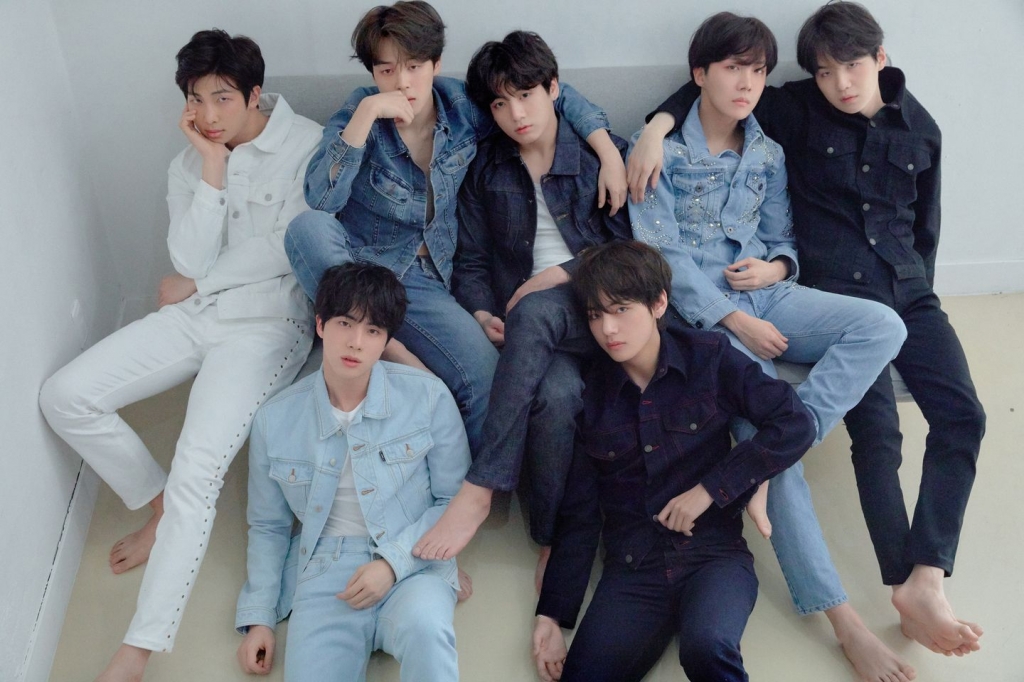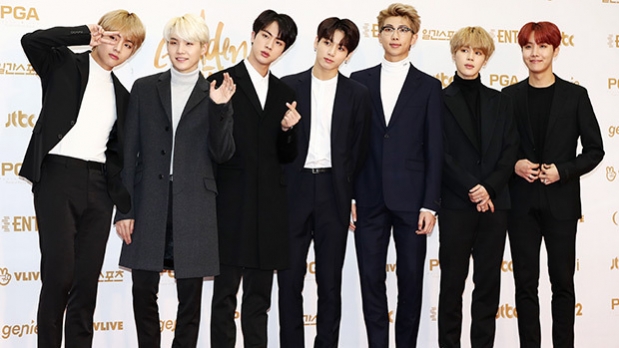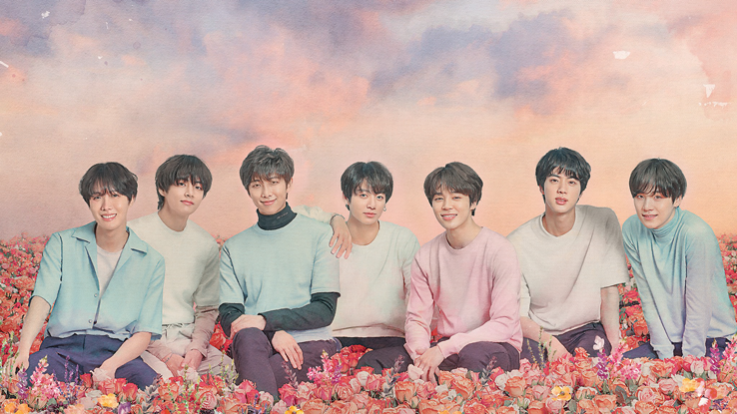How BTS Are Breaking K-Pop’s Biggest Taboos

In modern South Korea, pop stars and politics don’t often mix. While some hip-hop acts (such as Epik High) address controversial topics, many idol groups stick to a slick, apolitical formula with a proven record of success.

BTS, who just became the first K-pop act ever to top the Billboard 200 album sales chart, has become a record-setting success story in part because of their willingness to buck this convention. The seven young men who make up the group have been speaking their minds since their debut, openly discussing LGBTQ rights, mental health and the pressure to succeed – all taboo subjects in South Korea. Their stance is particularly bold given the Korean government’s history of keeping an eye on controversial themes in pop music. By straddling the line between maintaining a respectable image and writing critical lyrics, BTS has offered a refreshing change from what some critics and fans dislike about the K-Pop machine.
The group’s history of open-mindedness dates back to 2013 when they were still rookies and talking about same-sex relationships could have been a career killer. The group’s leader, RM, tweeted out his admiration for Macklemore & Ryan Lewis’ inclusive hit “Same Love” nonetheless: “This is a song about homosexuality. The song is twice as good when I listen to the lyrics.” At the time, he was a relatively unknown musician who had little to lose. But earlier this year, RM once again took a stance on Twitter, recommending “Strawberries and Cigarettes,” a song by the openly gay musician Troye Sivan, from the gay coming-of-age film Love, Simon.

These are small gestures, but they mean a lot to BTS’ fans. LGBTQ rights certainly aren’t perfect in the United States, but in South Korea, the situation is so abysmal that Amnesty International got involved last year after a South Korean soldier was sentenced to six months in prison for having a consensual homosexual relationship.
Behind the screams that fill any venue where BTS performs are millions of devotees who span generations, genders, religions, nationalities, and sexualities. And these fans – collectively known as ARMY – listen intently to the group’s self-penned lyrics and message, before disseminating and translating them into many languages.

For BTS and their fans, acts of generosity often bear a political message. After the Sewol Ferry sank off the coast of South Korea in April 2014, killing almost 300 teenage students, Korea’s politicians tried to distance themselves from the tragedy. Grieving parents participated in hunger strikes, while conservative supporters of then-President Park Geun-Hye downplayed the deaths, saying it was time to put the calamity behind them. Reports later exposed a government-sanctioned blacklist of celebrities who appeared to criticize Park’s regime; while BTS were likely unaware of this, they demonstrated which side they supported by donating $100,000 to benefit the victims’ families.
Several years ago, BTS member Suga told his fans that when he became rich, he would buy them beef – an expensive treat in today’s Korea due to high import duties. For his 25th birthday this year, he fulfilled his promise. But instead of handpicking fans to join him for dinner, he donated $19,000 worth of beef to feed orphans on behalf of ARMY. His fans were delighted and followed suit by making their own charitable donations.
When BTS partnered with the United Nations Children’s Fund (UNICEF) for its “Love Myself” anti-violence campaign, their fans asked how they could help. This May, ARMY played a crucial role in raising $1 million in less than two days for a UNICEF USA campaign to feed malnourished children.
As the group has matured from teenagers into young men, their lyrics have gained more gravitas. So, too, has their outspokenness about the issues that matter to them. They are aware that their fame gives them a huge platform.
Thirty-six South Koreans commit suicide every day, according to a report from Korea’s Ministry of Health and Welfare. While South Korea’s government has been slow to address this problem, some BTS members have been vocal about their own bouts with depression. In their docu-series “Burn the Stage,” a fan said, “Sometimes, BTS is the only reason I wake up in the morning.” In that same episode, RM talked about how depression had previously made him afraid to go back on stage: “I was unable to enjoy things like I used to.” And in their annual New Year’s message to their fans, Suga told them, “It’s okay to live without a dream.”
The group’s members know firsthand about the intense pressures many of their countrymen place on education and the negative impact this can have on mental health. With their songs, BTS tell their fans to fight back and remain alive. “Live as you like, it’s your life anyway,” they sing in the anthemic “Fire.” They continue the theme of survival on their new track, “Paradise,” telling listeners it’s okay to have modest goals: “We deserve a life.”
South Korea’s leadership is listening. After BTS’ historic No. 1 placement on the Billboard 200 this week, President Moon Jae-In said, “BTS has a magical ability to turn sadness into hope, and differences into similarity.”